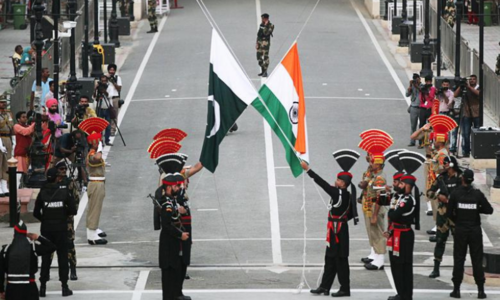WITH the fall of the Berlin Wall in 1989 and the demise of the Soviet Union in 1991, a new concept of globalisation entered the world’s political consciousness. The Cold War had ended, and a unipolar world emerged with the US at its centre.
Analysts predicted that the world would be one global village with a high level of interdependence between economies and cultures, and freer flows of goods, services, finance and people. Some analysts declared the victory of the liberal democratic order and market economies. Francis Fukuyama, in his famous 1989 article ‘End of History’, asserted that the evolution of political science had culminated in the triumph of liberal democracy and market economies over competing political systems.
There were euphoric expectations that the globalised world would benefit rich and poor nations alike because of interdependence. Thomas Friedman, in his 2005 book The World is Flat, noted that in the globalised world, historical and geographical divisions would gradually become irrelevant, and with a level playing field, traders would compete in a global market.
The UN started holding mega conferences to stitch together a new common normative framework for the entire world. In 1990, it organised a world conference on child welfare, in 1992 on the environment, in 1993 human rights, in 1994 population, in 1995 women and in 1996 on habitat.
With the dawn of the new century, five-yearly and 10-yearly reviews of the ambitious outcomes of these conferences started shaping a new, global sociocultural paradigm, essentially derived from Western thought and values. The dominant view was that the world had become truly globalised.
The first reality check came with the events of 9/11.
The first reality check came with the events of 9/11. The world discovered that the interconnectedness could also be misused by non-state actors who did not share the philosophy of the US-led liberal democratic and economic order.
The US invasion of Iraq in 2003 introduced the concept of pre-emptive strikes, a dangerous precedent that was followed later by other powerful states. The 2011 Arab Spring, which soon turned into an ‘Arab Autumn’, was another failed attempt to establish the superiority of liberal democracy as a panacea for all societies.
Meanwhile, in Asia, the political-economic landscape was changing at a breathtaking pace. With China leading the rise of Asian economies, it became evident that global power was now shifting to Asia. Kishore Mahboobani, in his 2008 book The New Asian Hemisphere: The irresistible shift of global power to the East, argued that the 21st century would witness a serious challenge to Western commerce, thought and power.
The first two decades of this century have shown that Western liberal democracy is not the only successful form of political system and that there are alternative, perhaps more efficacious, roads to human development. The spectacular rise of China is a case in point. The Chinese governance model is different from the liberal democratic order. Nevertheless, it has not only worked well to deliver continuously high rates of economic growth but has also helped lift nearly 800 million people out of poverty.
The most recent challenge to globalisation has emerged from the ongoing power competition, particularly between the US and China, raising fears that the world is on the cusp of another Cold War, leading to camp politics. The US has embarked on an elaborate Indo-Pacific strategy to contain China’s rise. It has even initiated steps to decouple its economy and that of Europe from China’s.
Several disturbing trends are concurrently impacting global geopolitics. Free international trade is giving way to trade protectionism. Migrants, once deemed vital for society, are being viewed as economic or cultural threats. Xenophobia, Islamophobia and the rise of far-right groups are causing societal disorders. Narrow nationalism is also on the rise, which populist leaders are exploiting to challenge the notions of interdependence.
So the world, it appears, is now headed towards de-globalisation. However, that is not the future it should aspire to. International cooperation is imperative for global prosperity.
Common and existential challenges such as climate change can never be tackled by countries on their own. Ironically, it is China, and not the West, which is emerging as the champion of globalisation, through its mega Belt and Road Initiative.
In these turbulent times, the best option for developing countries, including Pakistan, is to pursue self-help strategies for greater self-reliance while benefiting from our economic geography.
Our focus should remain on emphasising the importance of connectivity and trade within our region for a more prosperous South Asia and on bolstering our economic ties beyond the region as much as possible.
The writer is former foreign secretary and author of Diplomatic Footprints.
Published in Dawn, February 14th, 2023
















































Dear visitor, the comments section is undergoing an overhaul and will return soon.